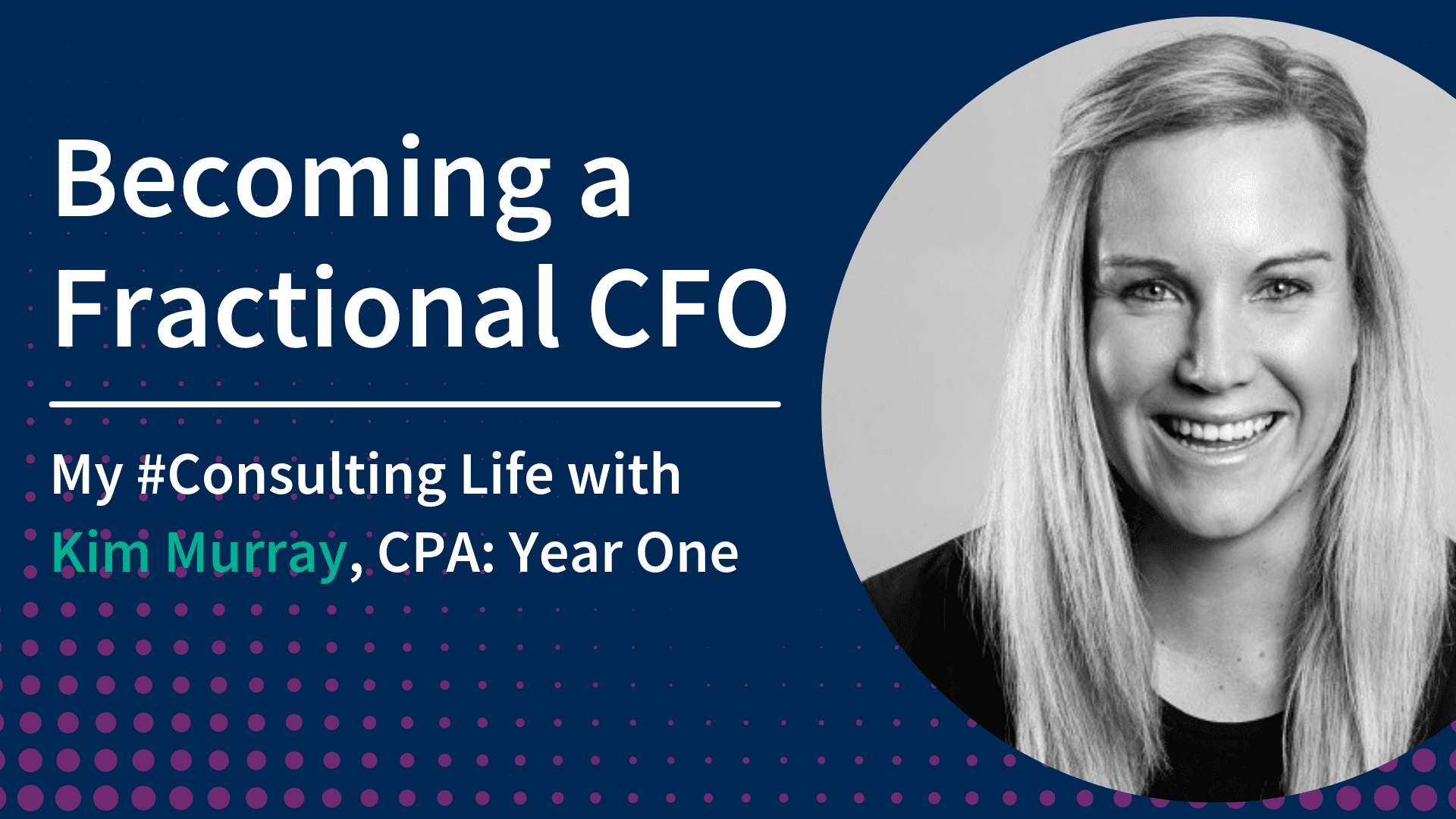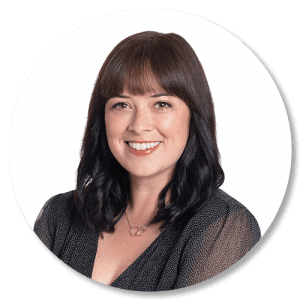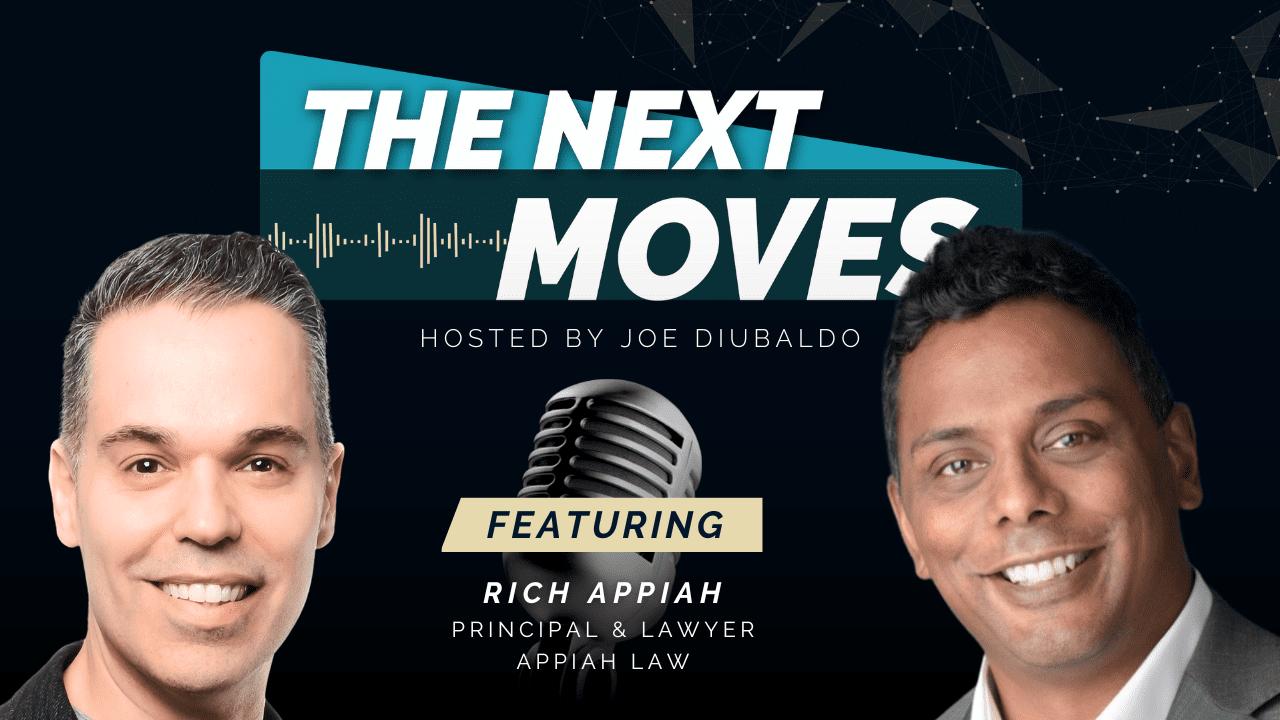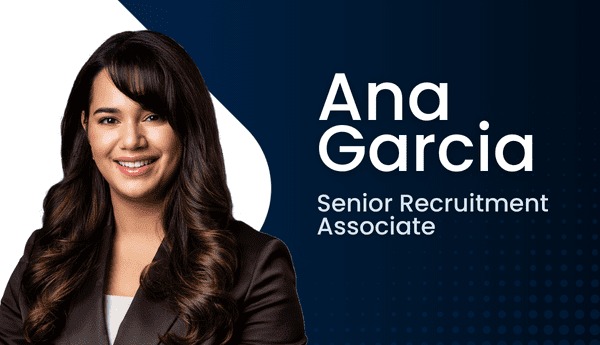Kim Murray is a fractional CFO with 15+ years of finance leadership experience in several different industries. About a year ago, Kim decided to transition from full-time roles to becoming a finance consultant and has since learned a lot about working with clients, the types of roles she’s most interested in, and how to grow professionally.
When Kim first started on the path of finance consultant, it was because she was looking for meaningful work that played to her strengths and allowed her to make an impact quickly. We spoke to her at the beginning of her journey and recently caught up with her again to see how it’s going and learn what advice she could share with other finance leaders considering the transition to fractional CFO.
You’ve been consulting for about a year now. How’s it been? What’s surprised you most about the work you’re doing as a fractional CFO vs. what you expected?
At the risk of sounding cliché, but there really is no other way to describe it, it’s been a rollercoaster! There have been some wonderful wins and great people, but also long days and uncertainty at times. I have a variety of clients, each at different stages of growth, and this brings different opportunities and challenges. But it’s ultimately what I love the most. I have also found working side by side with the owners of the company has really allowed me to be a business partner to them. There is also a large scope of what is expected of a CFO, from transactional, or strategic, or the ability to shift from projects or day-to-day certainly is an asset, which is another great aspect of the fractional CFO role.
How are you thinking about your next consulting opportunity? Has your approach to new opportunities changed?
As I approach my next opportunity, I am focused on the high impact, project type engagements – this truly aligns with wanting to add value from day one. When I look at new opportunities, I consider if a role will challenge me, if it aligns with my goals and if it excites me. Currently, I have such a wonderful mix of clients and they are the bar I use to measure (It’s a high bar!).
Now that you’ve completed several interim engagements, are you thinking about your business and brand differently?
100% Yes! When I first started the only thought was how will I make my paycheque each month. I am now able to think more strategically and have hired a part-time resource (who is awesome!) which allows me to have the time to plan how we grow in this exciting space. There are also industries I tend to gravitate towards too, so those may be more of a focus area in the future so that I can really leverage my skills and have a high level of engagement, whilst having the confidence of the clients.
In our last interview, you mentioned the importance of networking when finding opportunities. How are you balancing your time and ensuring you’re focused on this while balancing engagements.
If I am honest, this is REALLY hard! It’s so easy to get into a comfort zone when you have a roster of clients. However, as I have started to think about growth, I am shifting gears. I am fortunate to have a network of people who truly want to help me grow (thanks Clarity!), mentors and referrals from current clients.
We get a lot of questions from other financial consultants and interim executives about how to structure their fees when getting started. What have you learned this past year?
A value-based billing model is a great answer to this one. This is essentially a retainer, which gives you and the client a level of certainty, and everyone is a winner; you get paid for the value you bring, and the client gets an elevated service at an agreed price. This can be tough to offer straight off the bat, as the scope may evolve or grow, so do leave room for a review every couple of months in.
What are the top three things you do during the start of an engagement to ramp up quickly and ensure success?
- A kick-off meeting to align on priorities is key – often there are a few key issues keeping owners up at night and this is where you can add immediate value.
- Take time to assess the business as a whole – structure, finances and taxes, systems and long-term strategy and goals. You may uncover things that weren’t even on the radar.
- Communication is key – establish the preferred method of communication and engage with the various stakeholders from day one, this ensures buy-in and course correction as required.
Any tips for building trust with new finance teams who aren’t used to working with finance consultants or fractional CFO (and may even feel threatened)?
One lesson I have learnt over the years is that Finance Teams come in all shapes and sizes – my biggest learning was to understand what drives each team member, so for instance a highly motivated new CPA vs. someone who wants to be able to have a more balanced work-life – both bring equal value but may change how you engage with them and the type of work to allocate and where you can push, whilst allowing the team to work to their strengths or goals. Also, change can be hard for some, so try to work with them on getting them onboard.
What advice would you give to finance executives considering the move to interim and contract work?
There is a niche for everyone! Some CFO’s are super-specialized in terms of skills or industry, others have technical skills and some are more generalist – find your strengths and what excites you and work to these.
Focus on the “Why”. Why do you want to start consulting? For me, it was to create diversity in my work–doing work that was interesting and challenging. I truly can say no day is the same! If you have a clear reason for moving to consulting, a path to success will open up.About the AuthorCheck out more of our popular articles on Career AdvicePopular Articles





